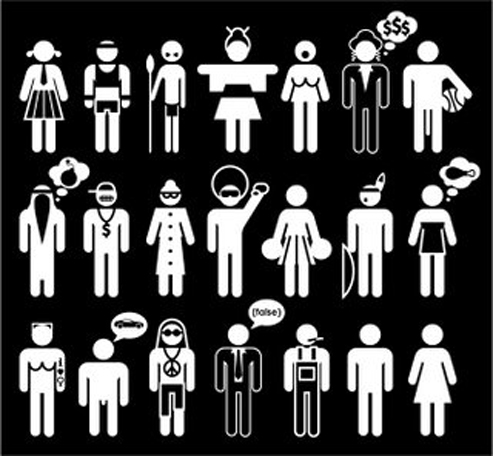Pole stereotype abroad. How to respond to it?
Hello,
This article will analyze the various stereotypes of Poles existing outside Polish borders (and not only). Everyone knows it. Do not be critical of the attitude of foreigners towards the Poles. Some of them felt it on their skin. It will be an image of the behavior of Poles living abroad, who are aware that there may be some bias and influence on them.
We leave Poland for various reasons, fleeing from something, which we do not like, or going in the direction of what we desire. In this new environment, a new culture, to be among people with different habits, we realize who we are, who we are, or who we want to be.
Encounter with different stereotypes, attitudes towards us, Poles. Stereotypes are the opinions that we create before we know the object / person concerned. Imagine Italian who met with Pole (his new friend from work), thinking about him from the perspective of a Polish loser, drinking vodka in the intervals of work, who steals or lies (do not know where he got this information).
How will the Italian behave towards him, the new known colleague from work? He looks at him with suspicion. The Italian won’t chat up, or during their very firs conversation he would ask questions such as: at what party he is going this weekend, what will be celebrating? etc. How can Polish person respond to such behavior? Trying not to talk too much, will not do the first step, and if he begin the conversation, he might give dry answer that he does not drink every day and upset criticize Italians ideas. How do you think, what will be Italians though? Well, yes, I knew he is boor and even do not want to admit what he was doing after work. You can not trust him. You can already see that Pole is two-faced. Thus, Italy confirmed that what previously believed, as he thought. Was this scene might run differently? How could you direct it from the beginning?
What are the psychological basis of the above described behavior? If you know someone, often we rely on the information available (incomplete, distorted, skewed) and behave as if they were true. And as a result they become true. Because as H. Von Hofmannsthal’s says- the only things that exist are those we believe in. A person that we communicate with respond to it, and looking at his earlier attitudes either confirms it or denies it. Is not active. His behavior is the result of the behavior of another person. Despite the fact that these are people that have not recognized, already have chosen a particular attitude towards yourself and stuck to it. Will it be difficult for the Italian to change his opinion about the Pole? And what is he supposed to do? Fight or give up? Or maybe there is a third solution?
How would you behave if you think that the people with whom you work, whom you surround yourself only have a positive opinion about the Poles? How would you change your behavior, knowing that all of your foreign colleagues, partners perceive you positively?
Greetings from Italy,
Agata RV


